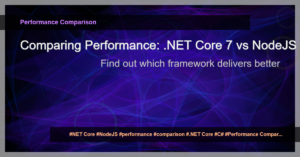Introduction to Data Types in C
In C#, every variable and expression has a data type associated with it. A data type defines the kind of value that a variable can store. It determines the size, range, and operations that can be performed on the variable. C# provides a rich set of data types for handling various kinds of data.
Common Data Types in C
- Numeric Data Types:
- int – Represents whole numbers ranging from -2,147,483,648 to 2,147,483,647.
- double – Represents double-precision floating-point numbers with a larger range and precision.
- decimal – Represents decimal numbers with a high degree of precision.
- float – Represents single-precision floating-point numbers.
- Character Data Type:
- char – Represents a single Unicode character.
- Boolean Data Type:
- bool – Represents a Boolean value, which can be either true or false.
- String Data Type:
- string – Represents a sequence of characters.
- Array Data Type:
- Array – Represents a collection of similar elements.
- Object Data Type:
- object – Represents any type of C# object.
Declaring Variables with Data Types
When declaring a variable in C#, you need to specify its data type. Here’s how you can declare variables with different data types:
int age = 25;
double weight = 65.5;
char grade = 'A';
bool isPresent = true;
string name = "John Doe";
int[] numbers = {1, 2, 3, 4, 5};
object person = new Person();
Type Inference in C
C# also provides type inference, which allows the compiler to determine the data type based on the assigned value. Here’s an example:
var salary = 5000; // Compiler infers the data type as int
var temperature = 26.5; // Compiler infers the data type as double
var message = "Hello, World!"; // Compiler infers the data type as string
Conclusion
Understanding data types is essential in C# programming. It helps ensure the correct representation and manipulation of data. By knowing the different data types available in C#, you can write more robust and efficient code. Remember to choose the appropriate data type based on the nature of the data you are working with, and leverage type inference when it simplifies code readability.
Now that you have a better understanding of data types in C#, you are ready to dive deeper into programming with confidence.
Happy coding!






